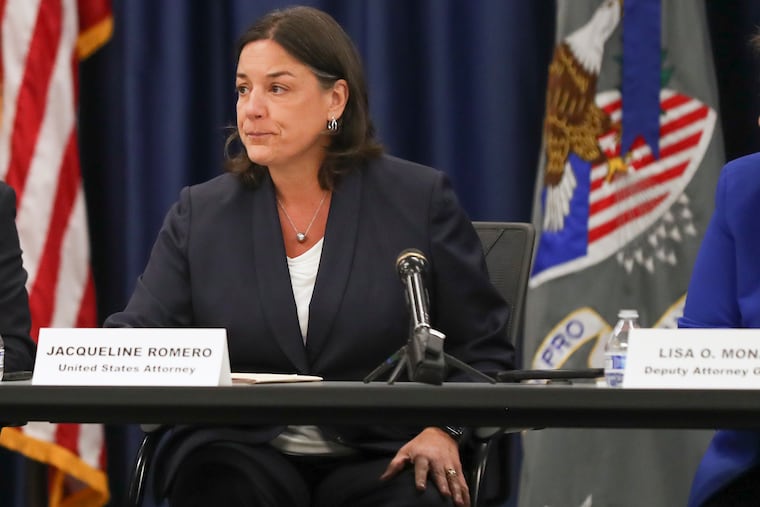Some PA drug courts will be required to allow participants to take opioid addiction medicine
Several county courts in Pennsylvania forbid people from taking common medications to treat opioid addiction, like methadone and buprenorphine.

Relief is coming to Pennsylvania residents who were left suffering from intense withdrawal symptoms or stuck in legal limbo for years by county drug courts that forbade them from taking the medications prescribed to control their opioid addiction, federal prosecutors say.
As part of a settlement agreement in a federal lawsuit, several county courts have agreed to allow these medications to be used by people in specialized courts for minor drug crimes, and all courts in Pennsylvania must consider adopting the practice. Several former drug court participants who were forced off their medication will split $100,000 in total as part of the settlement.
Drug courts are common nationwide and allow people charged with low-level drug offenses to participate in drug treatment to avoid jail time and, in some cases, expunge their records. But rules about participants’ conduct — including which medications they are allowed to take — can vary from court to court.
In 2022, federal prosecutors in Pennsylvania filed a lawsuit against the state’s Unified Judicial System, alleging that several county courts were unlawfully forbidding people in their drug courts from taking common medications to treat opioid addiction, like methadone and buprenorphine.
These are both opioid-based medications that can ease the symptoms of withdrawal from opioids, and evidence shows they are more effective at preventing overdoses and relapses into drug use than quitting illicit drugs cold turkey.
The terms of the settlement
The Justice Department’s settlement last week requires Blair, Jefferson, and Northumberland County courts to adopt within 60 days a nondiscrimination policy that prohibits them from barring people taking prescribed medications for substance use disorder. (As part of the terms of the settlement, the courts have not admitted wrongdoing.)
The Justice Department filed suit on behalf of several participants in Pennsylvania drug courts. Prosecutors say they were forced off their addiction medications because judges overseeing the courts had adopted policies forbidding those medications.
People taking medications to treat their opioid use disorder often grapple with the false perception that taking a medically prescribed opioid to treat an opioid addiction is simply trading one drug for another, Jacqueline Romero, the U.S. Attorney for the Eastern District of Pennsylvania, said in a statement. But it’s a violation of federal antidiscrimination law for courts to bar a patient from taking them.
One woman in central Pennsylvania’s Northumberland County spent four years in a drug court, according to the lawsuit, as she tried repeatedly to wean off her prescribed buprenorphine in order to graduate from the program. By the time she finally left the program, the woman was the court’s longest-ever participant, the lawsuit said.
Another woman in Western Pennsylvania’s Jefferson County drug court suffered “significant withdrawal symptoms, including insomnia, cramps, abdominal pain, nausea, and vomiting” that required emergency treatment at least once after a judge banned participants from taking buprenorphine. The court then referred the woman to an inpatient treatment program to taper off her medication; she spent a month there but was unable to successfully do so, the lawsuit said.
Delaware County’s connection to the lawsuit
Other county drug courts in Pennsylvania were cited in the lawsuit for similar tactics, but not sued. These included the drug court in suburban Philadelphia’s Delaware County, which had a policy of prohibiting “maintenance drugs in any form” for participants.
The policy cited in the lawsuit was “stale and outdated,” said Gerald Montella, Delaware County’s district court administrator. The county website currently does not list opioid addiction treatments on its “prohibited medications” list for drug court participants. Montella said the court now allows all forms of medication-assisted treatment for participants.
As part of the settlement, UJS must also train all judges in criminal and state courts on federal antidiscrimination laws and opioid addiction medications, as well as encourage every county court to adopt the same nondiscrimination policy as Blair, Jefferson, and Northumberland Counties.
In Delaware County, the court is committed to treating citizens fairly and will consider adopting the nondiscrimination policy, Montella said.
The suit is the latest instance in which the Biden administration has used antidiscrimination laws to ensure access to medications used to treat opioid addiction in the criminal justice system. Last year, the Allegheny County jail reached a settlement with federal authorities in a suit involving a man who allegedly was denied methadone while jailed, agreeing to pay him $10,000.
And in December, Romero entered a court filing in support of a lawsuit by brought a Delaware County man who was also allegedly denied prescribed methadone in the county jail, saying that jails must improve access to medication treatment options for opioid addiction.